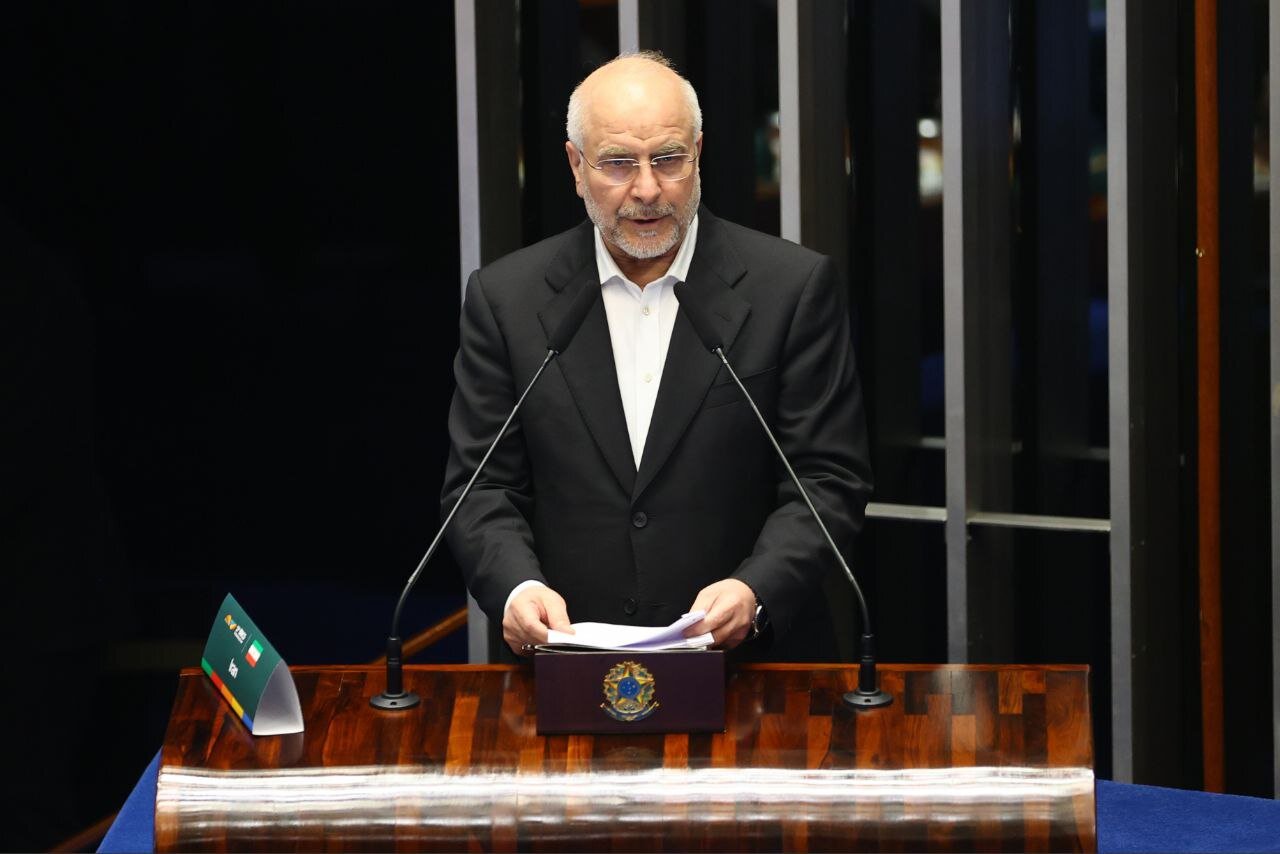Iran parliament speaker concludes strategic Latin America tour, urges BRICS unity against sanctions

TEHRAN – Iranian Parliament Speaker Mohammad-Baqer Qalibaf wrapped up a high-profile diplomatic tour of Latin America on Friday, culminating in Iran’s inaugural participation at the 11th BRICS Parliamentary Forum in Brazil.
The mission, aimed at deepening economic partnerships and countering Western unilateralism, included visits to Venezuela and Cuba, where Qalibaf signed cooperation agreements and championed alternatives to U.S.-dominated financial systems.
In Caracas, Qalibaf met President Nicolás Maduro and business leaders, declaring that Iran and Venezuela must “transition from dollar-based transactions to national currencies and BRICS Pay” to neutralize sanctions.
He presented Maduro with a statue of Iran’s legendary martyred General Qasem Soleimani, honoring Venezuela’s tribute to Soleimani’s role in thwarting a 2020 U.S. cyberattack.
The officials vowed to accelerate implementation of their 20-year strategic pact covering oil, defense, and agriculture, while Qalibaf stressed that banking obstacles must be removed to unlock private-sector potential.
“The more coordinated countries with shared interests and common adversaries are, the more effectively they can confront threats,” the parliament speaker asserted.
In Havana, Qalibaf met Cuban President Miguel Díaz-Canel and gifted him four advanced Iranian nuclear medicine kits, including groundbreaking diagnostic tools for bone metastasis and neonatal metabolic disorders.
He underscored the nations’ “historic revolutionary ties” during talks with National Assembly President Juan Esteban Lazo Hernández, agreeing to form a joint parliamentary commission.
“Our shared enemies, interests, and friends necessitate closer unity,” Qalibaf stated, highlighting Cuba’s symbolic role in Latin American resistance to U.S. pressure.
The two sides committed to expanding biotechnology and pharmaceutical collaboration.
BRICS summit: Sanctions as a 'global challenge'
At the Brasília forum, Qalibaf delivered Iran’s first official address as a full BRICS member in the BRICS Parliamentary Forum.
He condemned unilateral sanctions as a “new challenge to the global economy” that “threatens livelihoods and peace,” urging member states to adopt a joint charter against “illegal coercive measures.”
His three-point plan included:
I. Financial independence: Accelerating the BRICS Pay system and national currency usage.
II. Legal harmonization: Aligning trade and investment laws to create integrated markets.
III. Counter-sanctions coalition: Establishing a parliamentary task force to document sanctions’ impacts and lobby international bodies.
Qalibaf later held sideline meetings with key leaders. In India, Speaker Om Birla discussed enhancing connectivity via Iran’s Chabahar Port and cooperating on counterterrorism.
In Brazil, Chamber of Deputies Speaker Hugo Motta explored agricultural trade as well as BRICS financial mechanisms, noting that the $7 billion in third-party-channeled bilateral trade was expandable.
The tour underscored Iran’s strategy to forge and strengthen robust alliances amid an evolving multipolar world order, affirming its commitment to fostering sustainable economic growth and proactive global diplomacy.
In Venezuela and Cuba, Qalibaf described economic collaboration as resistance to U.S. hegemony, while at BRICS—now representing 45% of the world’s population and 40% of global GDP—he positioned Iran as a standard-bearer for a “multipolar world order.”
His call to reform the UN Security Council and end dollar dominance resonated with the bloc’s emerging economies. As the forum closed, Qalibaf declared: “Parliaments must elevate diplomacy from words to action.”
Leave a Comment